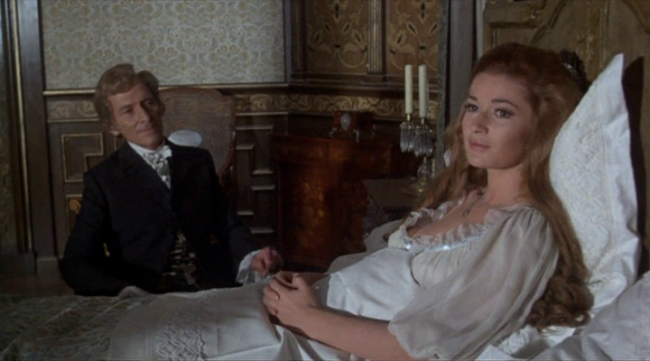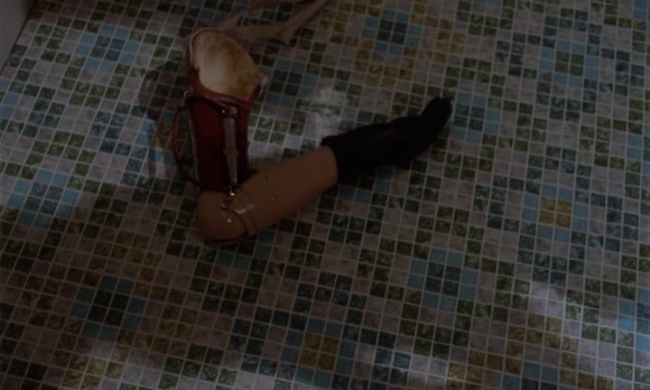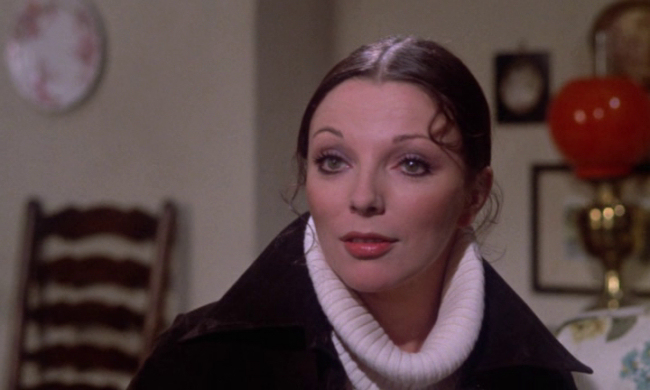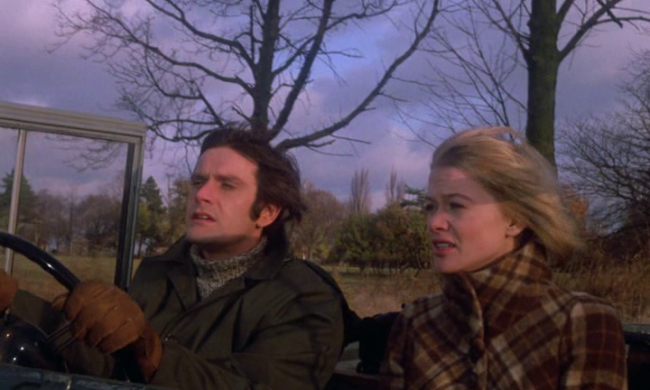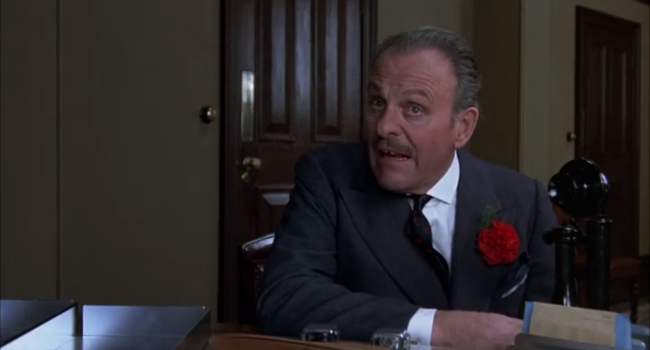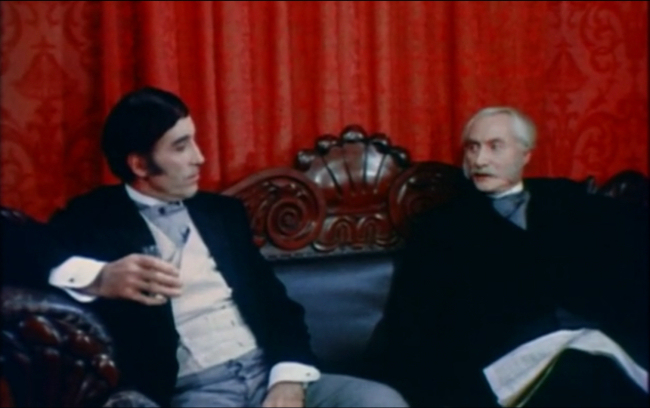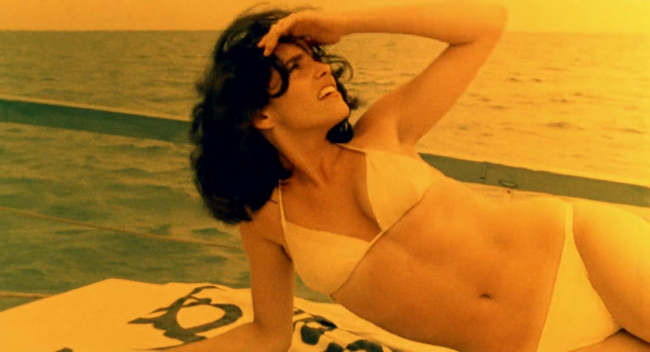
Now that I've read the magnificent original novel, the 1965 adaptation of She is even more frustrating. But it wouldn't be frustrating if there weren't things I like about it and top of the list is Peter Cushing and Bernard Cribbins.

All three of the male leads are well cast, actually, and could've been excellent playing closer to the original characters. Cushing as Holly isn't as brawny or as ugly as the character in the book is said to be but I think a little weight lifting and some makeup could've fixed that. There's not a thing wrong with Cribbins as Job the valet. John Richardson is bland and handsome but so was his character, Leo Vincey, in the book.
Strange echoes of their original relationship are retained in the film. In the book, Holly was a professor and foster father of Leo, who was bequeathed to him by a colleague along with mysterious artefacts. Job was Holly's servant. In the movie, the story has been moved to 1918, at the end of World War I (the book was published in 1887). Holly, Leo, and Job are soldiers, deciding how to return to civilian life. Job announces his intention to be a valet, Holly wants to go back to being a professor. The three in no way seem like soldiers, despite Peter Cushing's amusing attempt to be rowdy with a few topless dancers.

This also deviates from Holly in the book who's terribly awkward around women and whose lifelong unrequited romantic needs are an important part of the book's subtext. Cushing could've played that beautifully, alas, but he and Cribbins are wonderful as a sort of Frodo and Sam in the desert.

JOB: "I'm glad I'm not an educated man, sir, if that's what makes you go off on a damn fool search for lost cities."
HOLLY: "Isn't that exactly what you're doing, Job?"
JOB: "Well, yes, sir, but I'm too ignorant to know any better."
The changes were obviously made in the interest of condensing the story. They weren't good decisions, not just for putting the characters in roles they don't act like they're in anyway. It also loses a lot of the novel's mysterious build-up. Worse is the fact that Leo meets Ayesha, the She of the title, almost immediately, in a house in Palestine where she gives him a ring and a map to her hidden kingdom of Kuma. In addition to losing the mystery, it also doesn't make much sense for her to ask him to come find her when she's standing right in front of him.

Ursula Andress is appropriately beautiful though she wants an air of authority. One of the extraordinary things about the novel is how Ayesha came off as truly brilliant, capable of considering strategy and adept at judging character. Andress just seems like a petulant teenager.
Christopher Lee and Andre Morell are fine in supporting roles. Rosenda Monteros as Ustane, Ayesha's unexpected rival for Leo's affections, is perfectly fine, though Ayesha's treatment of her is another thing that lacks the nuance of the novel.
As flawed as it is, I can still see myself watching this movie again. I'm amazed it's so hard to find and it appears never to have had a blu-ray release, despite having been one of Hammer's greater box office successes.
Twitter Sonnet #1720
Evaluations sever glitter ties.
Misfortune chopped the business man to meat.
Reduction cost the bull a dream of lies.
The people's prank deflowered Mary's seat.
Some thirsty desert troops have wrecked the bar.
For phantom queen, the golden cub embarks.
Her sweaty dream was near but miles far.
His train assays a list of vain remarks.
Emerged again, the floating damsel paints.
We walk to wharves without the grace of paws.
And look, the lonesome lady quickly faints.
In beauty's sky were eyes and feudal laws.
With brazen praise, the goddess lines the cliff.
The beach below belongs beyond an "if".

